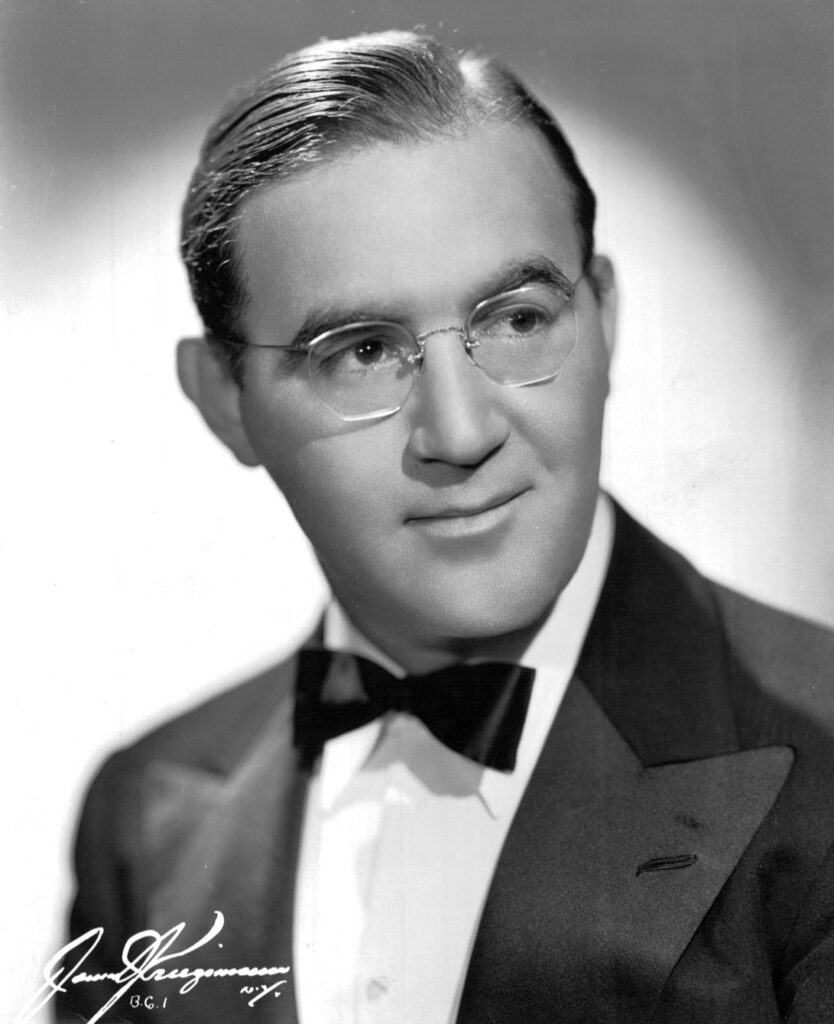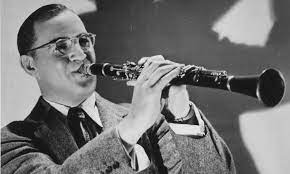Benny Goodman, often hailed as the “King of Swing,” was a pioneering figure in the world of jazz and big band music. Born on May 30, 1909, in Chicago, Illinois, Benjamin David Goodman grew up in a poor Jewish immigrant family. His parents, David and Dora Goodman, were struggling to make ends meet, but they recognized their son’s musical talent early on.
At the age of 10, Benny began taking clarinet lessons, and by his mid-teens, he was already performing with local bands in Chicago. He dropped out of school to pursue music full-time, a decision that would shape the course of his life.
- The King of Swing: Benny Goodman, born on May 30, 1909, in Chicago, Illinois, earned the title “The King of Swing” due to his groundbreaking contributions to the jazz and swing music genres during the 1930s and 1940s.
- Pioneer of Integration: Goodman played a significant role in breaking racial barriers in the music industry. In 1936, he became the first white bandleader to hire African American musicians full-time, including the legendary pianist Teddy Wilson and vibraphonist Lionel Hampton.
- Carnegie Hall Concert: On January 16, 1938, Goodman and his band performed at Carnegie Hall in New York City. This historic concert is regarded as one of the most important events in the history of jazz music and helped legitimize jazz as a serious art form.
- “Sing, Sing, Sing”: One of Goodman’s most famous recordings is “Sing, Sing, Sing,” featuring an iconic drum solo by Gene Krupa. This song became a signature piece for Goodman and is considered a classic of the swing era.
- Clarinet Virtuoso: Goodman was renowned for his virtuosic clarinet playing. His technical skill, expressive phrasing, and improvisational ability set a standard for jazz clarinetists that many have aspired to emulate.
- Child Prodigy: Benny Goodman displayed musical talent from a young age. He began playing the clarinet at the age of 10 and was soon performing in local bands in Chicago.
- Cross-Genre Collaborations: Goodman was not confined to one style of music. Throughout his career, he collaborated with artists from various genres, including classical musicians like Aaron Copland and jazz greats such as Count Basie and Duke Ellington.
- Film Appearances: Goodman also made appearances in several films, showcasing his musical talent and charisma on screen. Notable films featuring Goodman include “The Benny Goodman Story” (1955) and “Hollywood Hotel” (1937).
- Grammy Lifetime Achievement Award: In recognition of his immense contributions to music, Goodman was posthumously awarded the Grammy Lifetime Achievement Award in 1986.
- Enduring Legacy: Benny Goodman’s influence on jazz and popular music continues to be felt to this day. His recordings are still celebrated, and his innovative approach to music continues to inspire musicians worldwide.


No responses yet